Australia and Vietnam foster education and training towards green economy
The Australian delegation includes leaders, professors, and industry experts from 17 leading universities and training institutions, and representatives of four states and territories. It is being led by Rebecca Ball, senior trade and investment commissioner for the Australian government.
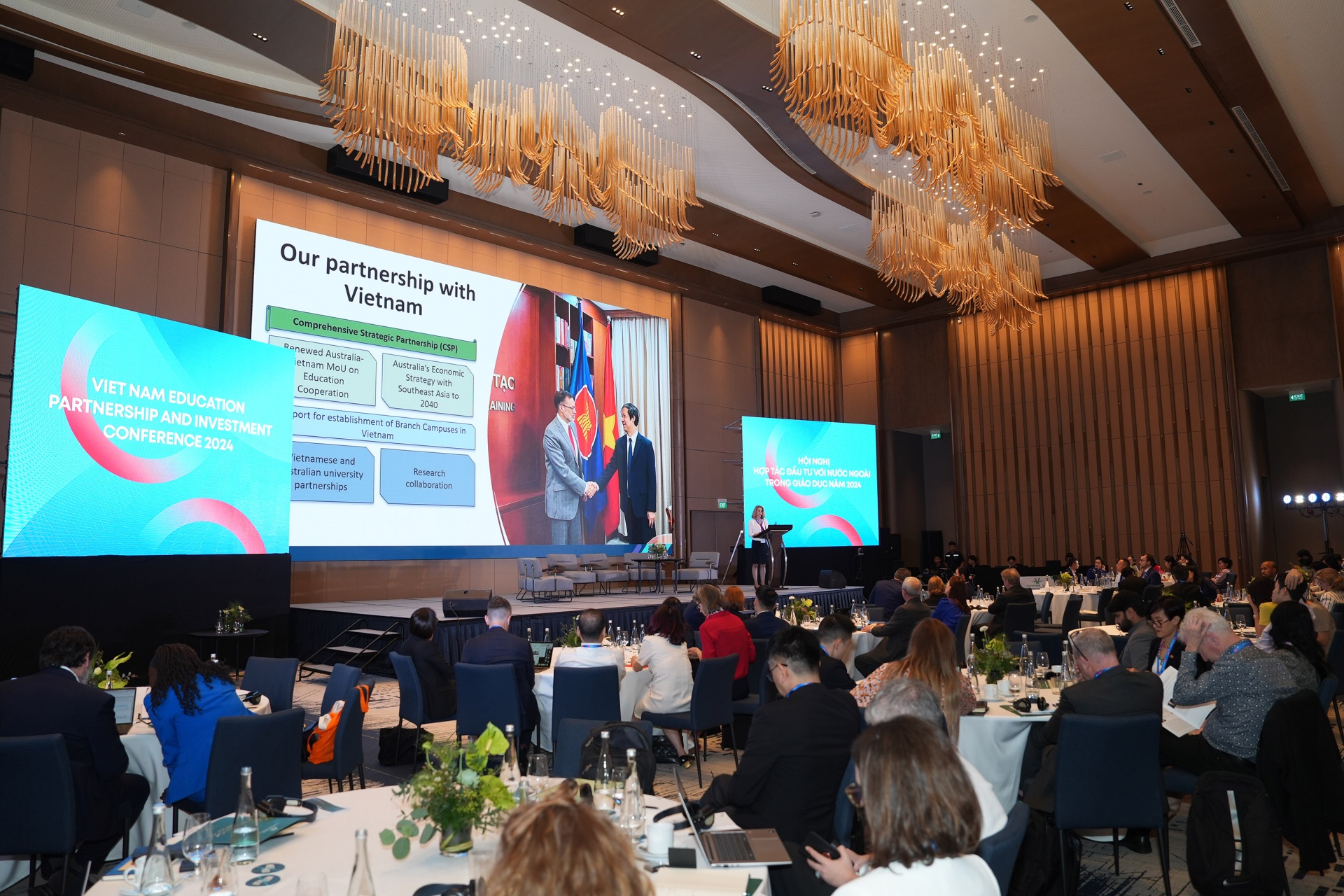 |
| The Australia-Vietnam Partnerships: Innovation, Education and Training towards a Green Economy Forum in Hanoi on September 27 |
During the mission, the delegation was updated on the latest transnational education policies and practices through the Vietnam Ministry of Education and Training (MoET) Education Partnership and Investment Conference in Haiphong.
Members also visited DEEP C Industrial Zones facilities, and spoke with state-owned enterprises and industry leaders, to better understand the current stage of Vietnam's green economy transition.
On September 27, the Australia-Vietnam Partnerships: Innovation, Education and Training towards a Green Economy Forum, hosted by the Australian Trade and Investment (Austrade), welcomed over 150 Vietnamese universities, colleges, associations, and businesses from the agriculture, energy and manufacturing industries to explore academic and research partnerships with Australian educational institutions.
On the same day, Austrade, in collaboration with Hanoi University of Science and Technology, organised a discussion focusing on renewable energy, battery storage, and green building.
The Australian delegation had in-depth discussions with Vietnamese universities and leading businesses to prepare for Vietnamese science and technology graduates with skills and knowledge to navigate net-zero goals.
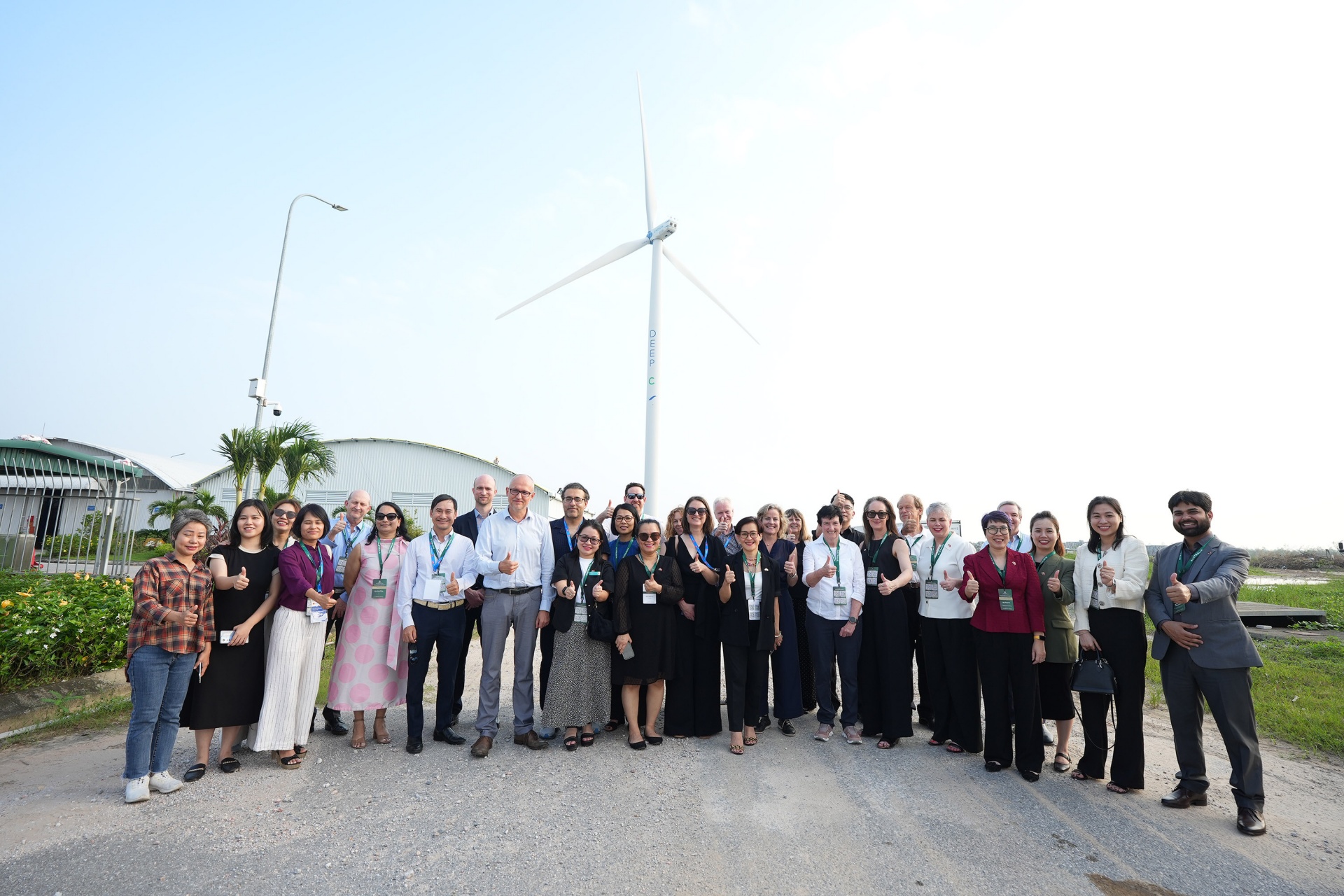 |
Vietnam’s national strategy aims to achieve net-zero emissions by 2050, focusing on reducing greenhouse gases, increasing the use of renewable energy, and enhancing sustainable urban development.
The transition is expected to generate nearly one million new jobs by 2040. Vietnam will need to reskill, upskill, and new-skill its workforce to meet employment demands in new and existing sectors, including energy, manufacturing, and transportation.
Ball emphasised, “As Vietnam strives to achieve its ambitious net-zero emissions target by 2050, Australia’s expertise in green technologies, sustainable practices, and clean energy solutions will play a crucial role in supporting Vietnam’s workforce development and green economy transition. Our institutions, recognised globally for sustainability programmes, stand ready to contribute to Vietnam’s decarbonisation efforts and future economic growth.”
Ranked 11th globally for sustainability programmes, Australian institutions are at the forefront of research and innovation in green technologies. Australia’s leadership in hydrogen exportation, lithium production, and clean energy further underscores its role in providing the knowledge and tools needed for Vietnam’s successful transition.
With a proven track record of delivering high-quality, industry-relevant education and training centred on sustainability and green technologies, Australian educational institutions are well-positioned to bridge the “green” skill gaps in Vietnam.
What the stars mean:
★ Poor ★ ★ Promising ★★★ Good ★★★★ Very good ★★★★★ Exceptional
Related Contents
Latest News
More News
- Vingroup consults on carbon credits for electric vehicle charging network (January 28, 2026 | 11:04)
- Bac Ai Pumped Storage Hydropower Plant to enter peak construction phase (January 27, 2026 | 08:00)
- ASEAN could scale up sustainable aviation fuel by 2050 (January 24, 2026 | 10:19)
- 64,000 hectares of sea allocated for offshore wind surveys (January 22, 2026 | 20:23)
- EVN secures financing for Quang Trach II LNG power plant (January 17, 2026 | 15:55)
- PC1 teams up with DENZAI on regional wind projects (January 16, 2026 | 21:18)
- Innovation and ESG practices drive green transition in the digital era (January 16, 2026 | 16:51)
- Bac Ai hydropower works stay on track despite holiday period (January 16, 2026 | 16:19)
- Fugro extends MoU with PTSC G&S to support offshore wind growth (January 14, 2026 | 15:59)
- Pacifico Energy starts commercial operations at Sunpro Wind Farm in Mekong Delta (January 12, 2026 | 14:01)

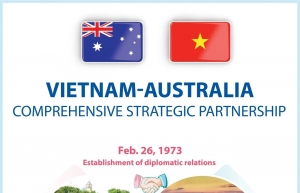
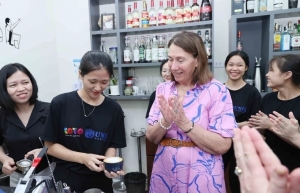

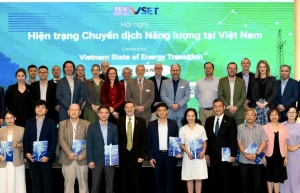
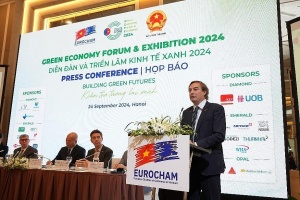
 Tag:
Tag:




















 Mobile Version
Mobile Version